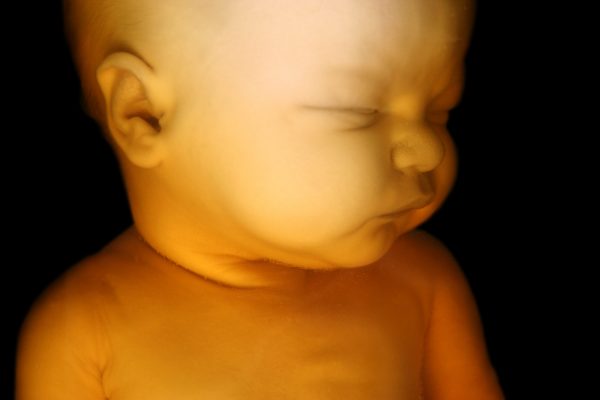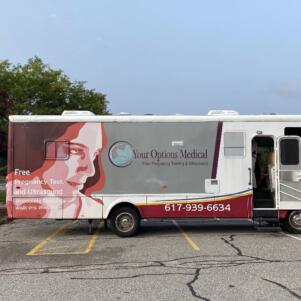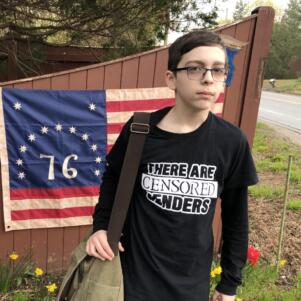Pregnancy Centers Shouldn’t Have To Advertise for Abortion Clinics – And You Shouldn’t Have To, Either
By Dwight Duncan | March 20, 2018, 9:24 EDT

The U.S. Supreme Court hears oral arguments Tuesday morning for a case stemming from a California law that tries to force pro-life pregnancy centers to tell clients where they can get an abortion.
State officials in California claim pregnancy centers run by volunteers are commercial entities, and that it’s therefore all right to regulate them by forcing them to fork over information about the competition – in this case, abortion clinics.
Lower federal courts in California agreed, including the 9th Circuit Court of Appeals, which has the distinction of being the court overturned most often by the U.S. Supreme Court.
Yet the First Amendment’s free speech guarantee doesn’t just protect the right to say what you want – it also protects the right to not say what you don’t want. The federal Supreme Court recognized that in 1943 in West Virginia Board of Education v. Barnette, when it held that forcing Jehovah’s Witnesses to salute the flag and pledge allegiance violated freedom of speech: “If there is one fixed star in our constitutional constellation, it is that no official, high or petty, can prescribe what shall be orthodox in politics, nationalism, religion, or other matters of opinion or force citizens to confess by word or act their faith therein.”
Even if the court holds that the pregnancy centers’ speech should be considered “professional speech” (as opposed to individual speech), that still doesn’t justify the California law. The Supreme Court has held in a couple of cases involving the National Association for the Advancement of Colored People and the American Civil Liberties Union that the regulation of professional speech is subject to the legal standard of “strict scrutiny” and is presumed unconstitutional in cases where the professional speech is not motivated by pecuniary interest.
Since the California pregnancy center staff members are volunteers, their interest isn’t money – it’s saving lives.
In addition to the legal niceties, there’s a certain repugnance about allowing government to force advocates on any side of an issue to lead people to a course of action they not only disagree with but also view with horror. For all these reasons, I suspect that at least five of the nine justices will strike down the California law later this spring – and it may even be unanimous.
There are several local angles to this current case, which is known as National Institute of Family and Life Advocates v. Xavier Becerra, Attorney General of California. Two Massachusetts pro-life organizations and a pro-life individual have joined in a friend-of-the-court brief that I filed on their behalf in January.
They certainly have their own situations in mind — it’s not hard to see where some pro-abortion politicians in Massachusetts might take such a legal principle if it were allowed to stand in California. But local pro-lifers are also standing up for free speech in a way that affects all of us, no matter what we believe about abortion.
As the brief states, there is no reason to consider advice from pro-life volunteers as “commercial speech” somehow subject to greater government regulation than the rest of us get: “To hold that the pregnancy centers are engaging in commercial speech would transform a broad array of expressive action unconnected to economic self-interest into regulable commercial speech.”
The brief represents Massachusetts Citizens for Life, the leading pro-life group in Massachusetts; the Pro-Life Legal Defense Fund, another Massachusetts not-for-profit which offers pro bono legal services for the protection of human life; and Eleanor McCullen, the local pro-life counselor who was the lead plaintiff in McCullen v. Coakley, a 2014 case where the U.S. Supreme Court unanimously struck down a Massachusetts law that banned pro-life counseling within a buffer zone around abortion clinics. (Another signer is Expectant Mother Care, a non-profit network of pro-life centers that offer alternatives to abortion in New York.)
My co-counsel is Mary Ann Glendon, professor at Harvard Law School and former U.S. ambassador to the Holy See.
Law professors like me excel at taking credit for other people’s work, but justice demands that in this case credit go where it should. Most of the legal research and writing was done by a talented group of Harvard Law School students working pro bono over their Christmas vacation. Recruited by third-year law student Steven Obiajulu, and ably coordinated by second-year student Grant Newman, they included fellow second-years Ryan Proctor and Asher Perez and a diverse group of others, including some first-year students who prefer to remain anonymous.
A decision is expected by the end of the current Supreme Court term, around June 30.
Dwight G. Duncan is professor of law at the University of Massachusetts School of Law in Dartmouth.










